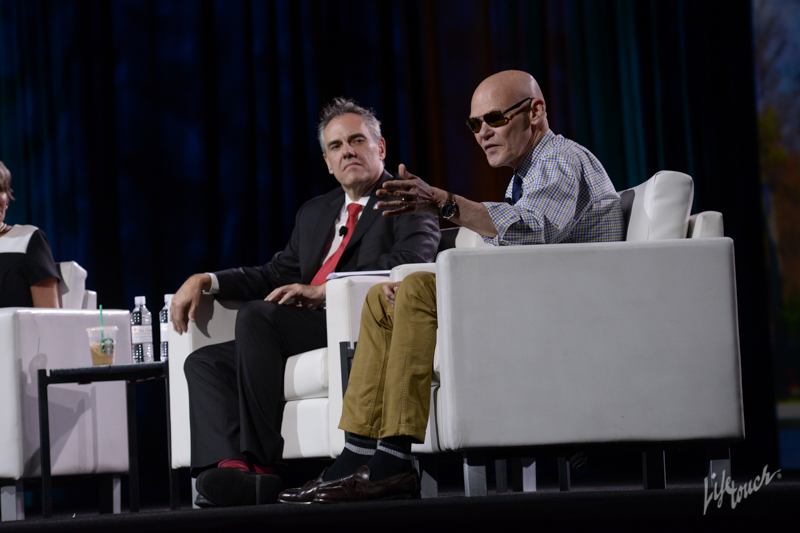“Never has this country been more divided,” James Carville told attendees at the 3rd General Session of AASA’s 2017 national conference in New Orleans.
The political strategist told the final audience of this conference he believed negative partisanship was behind the trend. “They don’t like their own party, but they absolutely loathe the other party.
“I think we’re not quite there yet,” Carville said, “but the fever has to break. The pendulum will swing back.”
Carville, a political science professor at Tulane University and a White House aide with the Clinton administration, and Mary Matalin, a conservative Republican turned Libertarian, agreed on this point, citing history as the reason.
The husband-wife team’s fiery responses on stage drew chuckles, applause and a few quiet boos during the panel discussion. The chuckles came when she teased her husband, the applause when she praised educators and the boos when she argued that charter schools and private schools “complement” each other.
Matalin acknowledged the hard work that superintendents and other educators do. “Thank you for saving children’s lives,” she said.
Matalin held up Communities In Schools and Teach for America as organizations that bring something valuable to public education. However, when she went so far as to suggest that charter schools be partners to public education, the audience murmured.
She called it a “false choice” to present it as an either/or model, public education versus private or public education versus charters. Matalin sees the possibility of working together.
“Charters in Louisiana are blowing kids’ lives,” Carville interjected in a firm voice. “You can read the research.” A heated response from Matalin was cut short when Carville suggested they “move on.”
In closing, both parties had advice for superintendents who must advocate for public education.
“We have to stop presuming all these people have nefarious reasons for putting forth proposals,” Matalin said. “Show them the kids who sang here to make your point.”
Carville agreed with his wife, saying that building a strong case will be more effective if you have parents and students speak for you. Invite them to your schools. Do some research to find out consumer satisfaction. Parents are your primary consumer and their voices will have the most influence.
Their memoir, Love and War: 20 Years, Three Presidents, Two Daughters and One Louisiana Home, provides additional insights into their marriage, family and American politics.
(By Liz Griffin, senior reporter for Conference Daily Online)


